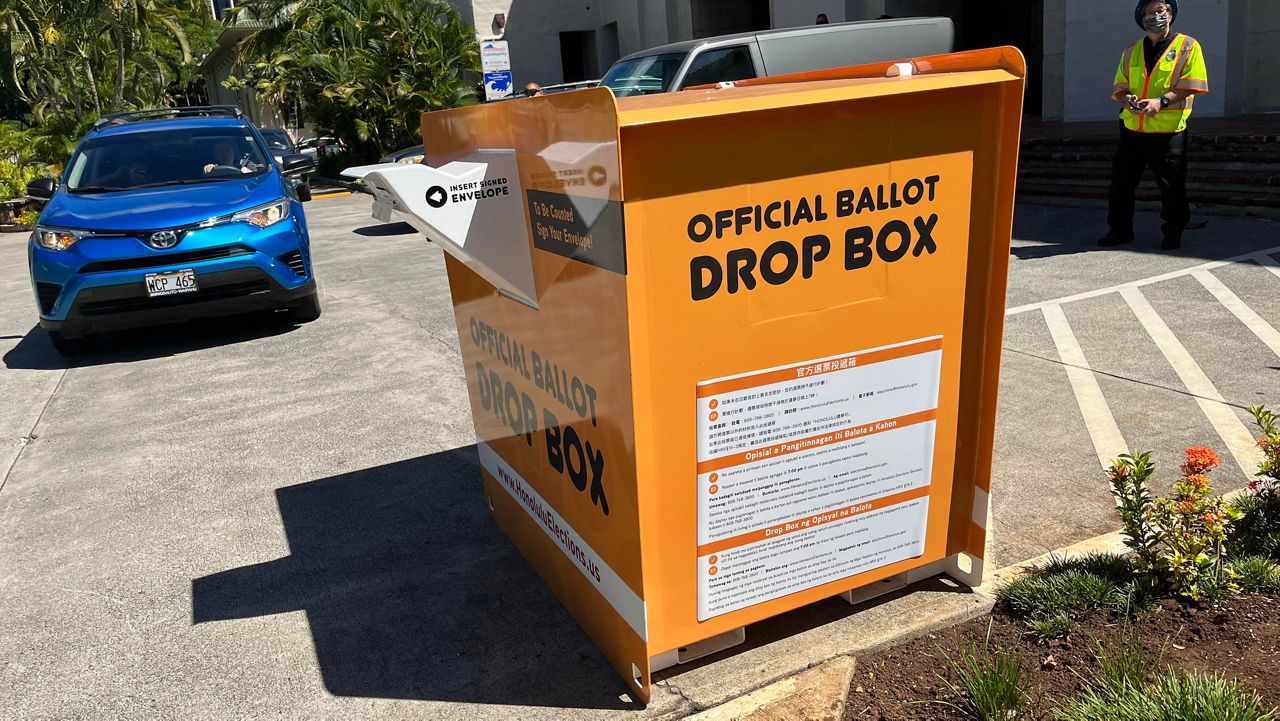HONOLULU — For a midterm election with much on the line — two congressional seats, the governorship, two mayoral positions, nearly the entire state legislature and a host of council seats — what little drama exists down-ballot.
U.S. Sen. Brian Schatz, U.S. Rep. Ed Case and House candidate Jill Tokuda each won their primary races handily, with overall vote totals that figure to translate well given the state’s Democratic leanings.
Schatz garnered 228,595 votes to win the Democratic nomination. His Republican challenger Bob McDermott finished with 25,686 votes. Case (100,667) and Tokuda (62,275) held similar total vote advantages over their Republican challengers, Conrad Kress (13,449) and Joe Akana (28,200), respectively.
Former Lt. Gov. Duke Aiona and running mate Junior Tupai are viewed as significant underdogs to Democratic candidates Lt. Gov. Josh Green and Sylvia Luke in the gubernatorial race but have been making an aggressive push to mobilize conservative voters in recent weeks, mostly recently with a statement against schools potentially mandating COVID-19 vaccination for students.
Because of reapportionment, the periodic redrawing of legislative districts based on updated census data, all 76 seats in the state Legislature were up for election this year. Three legislators ran unopposed, but the remaining 73 seats will be decided in the general election.
In mayoral races, Kauai Mayor Derek Kawakami dominated primary voting, notching 13,574 votes against just 2,099 for his general election challenger Michael Poai.
Incumbent Maui Mayor Mike Victorino figures to have a much harder fight ahead of him against former circuit court judge Richard Bissen, who finished with a 13,498 to 11,794 vote advantage over Victorino in the primary.
Maui residents will also vote on 13 proposed charter amendments.
Beyond the actual races, the biggest questions heading into Nov. 8 may be how many voters cast a ballot and when the final results will be known.
Ballots were mailed out earlier in the week and were expected to arrive in mailboxes no later than Friday. Ballot drop-off boxes have been open in certain locations since Oct. 18 and will remain available until the end of election day. Most voter service centers open on Oct. 25.
Ballots must be received by county elections divisions no later than 7 p.m. on Nov. 8 to be counted. On election day, service centers will be open from 7 a.m. to 7 p.m., and drop boxes will remain open until 7 p.m. Same-day voter registration and accessible in-person is available at all voter service centers.
In the August primary, just 340,159 (39.8%) of 853,874 registered voters voted. And while greater than 90% of voters cast a ballot in advance of election day via mail, ballot drop box or voter service center, meaning their votes were tabulated for the initial results report, long in-person lines on Maui delayed the release of those initial results by more than an hour.
Returned ballots are collected by a county elections division. At each intake facility, a high-tech scanner-sorter takes an image of each piece of mail and compares the signature on the return envelope against a reference signature on file with the person’s voter registration record. If the signature does not match the signature on file or is missing, the county elections division notifies the voter, who then has up to five days after the election to resolve the issue.
It also records each ballot and credits the voter for having voted, which prevents multiple submissions.
All valid ballots are collected, caged and transferred to the state office of elections for counting.
The counting is monitored by official observers to ensure ballot-handling protocols are followed.
The procedure includes opening the envelope, removing the ballot from the secrecy sleeve, and unfolding ballot and packing it for counting. The actual counting is done by an automated scanner.
According to the Office of Elections, the first readout of results will be shared once all voter service centers and drop boxes have been closed at 7 p.m.
As the vast majority of ballots are expected to be received prior to Saturday, and because Hawaii law allows ballots to be counted prior to election day (as long as results are not reported until after polls closed), it is expected that, as in the primary, the first readout will be a strong if not definitive indication of the ultimate outcome of all but a handful of races. A second readout will be released two to three hours later, and a final report is expected a couple of hours after that.
Michael Tsai covers local and state politics for Spectrum News Hawaii.



